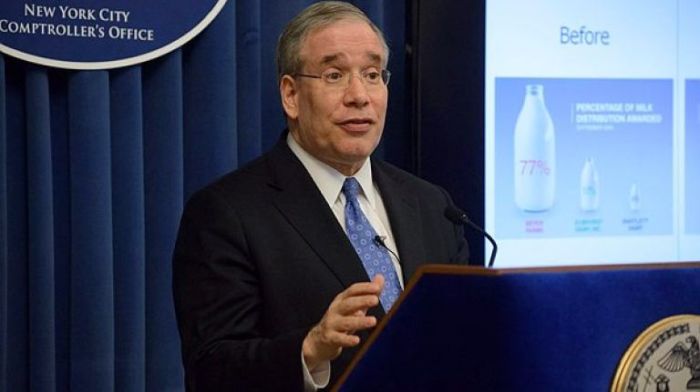According to research published earlier this year in the Journal of the American Heart Association (JAHA), women exposed to domestic abuse were 31% more likely to develop cardiovascular disease than women who had not experienced abuse.
In the U.S. one in four women has experienced domestic abuse severe enough that it resulted in injury, the need for medical help or symptoms of post-traumatic stress disorder. Additionally, the JAHA study found that women who experience domestic abuse may also be more likely to develop stroke and type 2 diabetes.
That is why the American Heart Association, through the Bernard J. Tyson Impact Fund, will honor Domestic Violence Awareness Month by investing in New Destiny Housing, a nonprofit that ends the cycle of violence and homelessness for victims of domestic violence in New York City.
According to researchers, the association between domestic abuse and heart disease is likely due to acute and chronic stress. In New York City, stress from a lack of affordable housing, rising unemployment, and domestic violence are among the leading causes for homelessness. Experts agree that exposure to domestic abuse may be associated with other lifestyle factors, potentially contributing to things like poor diet, alcohol, and smoking, as well as poor mental health.
The American Heart Association funding aims to expand New Destiny Housing’s HousingLink model, which is an innovative and cost-effective solution that helps low-income and domestic violence survivors who are homeless or at-risk of homelessness secure permanent housing as quickly as possible, while offering wraparound services that foster long-term housing stability.
“We welcome the opportunity to collaborate with the American Heart Association and honor Domestic Violence Awareness Month with this timely gift,” said New Destiny’s Executive Director, Nicole Branca. “Over 40% of all homeless families in New York City cite domestic violence as the cause of their homelessness. By working together, we can help empower our families to end the cycle of violence and connect them to safe, permanent housing and services.”
The goal of the Bernard J. Tyson Impact Fund is to reduce the social and economic barriers to health equity by investing in local social entrepreneurs, small businesses and organizations within under-resourced communities to help them scale their sustainable solutions addressing social determinants of health – the environmental and social conditions in which people are born, grow, live, work, and age.
“Due to COVID-19, shelters pose new risks to the health of domestic violence survivors and their children. Now more than ever, cities need to look to innovative affordable housing programs as a long-term solution to homelessness caused by domestic violence. With this support from the American Heart Association, we will be able to both reduce the time to connect survivors to an apartment and help more survivors find a safe affordable home,” Branca said.
The Bernard J. Tyson Impact Fund received an initial anchor investment of $1M in New York City from the Elizabeth Elting Foundation Halo Fund (Elizabeth Elting and Michael Burlant) to invest in social enterprises within under-resourced communities thereby shifting the funding paradigm to small, community, minority- and women-led businesses and non-profits.
“I’m thrilled that the Bernard J. Tyson Impact Fund chose to invest to amplify organizations and leaders who are serving as forces for change in the New York City community. We need to eradicate systemic barriers for those society has too often shut out,” said Liz Elting, Founder and CEO of the Elizabeth Elting Foundation. “The New Destiny House is an organization that will help drive solutions for women trying to overcome the effects of domestic violence. This work will eventually empower those women and will give them the best opportunity for a long and healthy life.”
Growing the Bernard J. Tyson Impact Fund will allow the American Heart Association to support more community-led solutions nationwide. If you’re interested in accelerating community transformation alongside the American Heart Association, email BJTImpact Fund@heart.org.




































